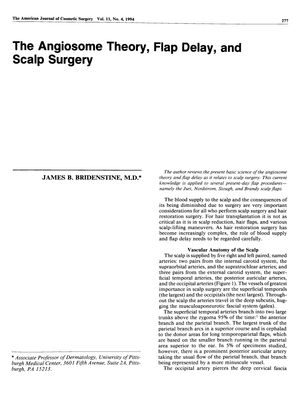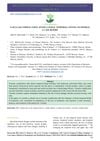The Angiosome Theory, Flap Delay, and Scalp Surgery
December 1994
in “
The American Journal of Cosmetic Surgery
”
angiosome theory vascular anatomy hair restoration scalp surgery blood supply delay phenomenon arteriosomes venosomes flap procedures Juri flap Nordstrom flap Stough flap Brandy flap tip necrosis arterial anastomoses replantation avulsed scalp hair restoration scalp surgery blood supply flap procedures tip necrosis replantation

TLDR Understanding the scalp's blood flow and using delay techniques can improve the success of hair restoration surgeries.
The 1994 document reviews the angiosome theory and its application to scalp surgery, emphasizing the importance of understanding the vascular anatomy for successful hair restoration procedures. It explains the scalp's blood supply, the delay phenomenon to enhance flap survival, and the concepts of arteriosomes and venosomes. The document details the use of various flap procedures, including the Juri, Nordstrom, Stough, and Brandy scalp flaps, and their outcomes. Specifically, the Nordstrom TPO flap was used in 23 patients for 35 flaps with two cases of tip necrosis, while the Brandy Bilateral Occipitoparietal Flap saw necrosis rates drop from 6.5% to 0.38% in 263 cases after implementing a delay technique. The document concludes that while arterial anastomoses may make delays unnecessary for some flaps, delays can still provide increased blood supply and security, particularly when flaps are twisted or stretched, potentially reducing perfusion. It also notes the scalp's robust blood supply, as evidenced by the successful replantation of an avulsed scalp with only one artery and vein reanastomosed.




